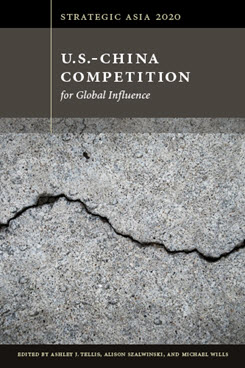U.S.-China Competition in the Post-Soviet Space
This chapter argues that U.S.-China competition is reshaping international politics in the post-Soviet space as countries in the region look to play China and the U.S. off of each other.
EXECUTIVE SUMMARY
MAIN ARGUMENT
U.S.-China competition has disparate impacts in different countries in the post-Soviet space. Russia is using the competition to bolster its own geopolitical competition against the U.S., hoping that China will work with it to degrade U.S. power. Eastern European countries such as Ukraine and Georgia want Chinese investment but realize that a close partnership with the U.S. remains their best hope for security against Russia. Central Asian countries also desire Chinese investment but are wary of the political strings that come attached. They hope that U.S.-China competition will encourage the U.S. to increase its economic and diplomatic engagement in Central Asia while convincing Washington to drop its demands for democratization. Most countries in the region, therefore, view U.S.-China competition as an opportunity to demand more support from both Beijing and Washington. Though countries in the post-Soviet space will argue that they are crucial to the outcome of U.S.-China competition, the region will ultimately remain a sideshow in this rivalry.
POLICY IMPLICATIONS
- In Central Asia, countries welcome more U.S. engagement but oppose U.S. pressure for the protection of human rights or democratization.
- In Eastern Europe, the U.S. must balance its desire to compete with China with the reality that countries such as Ukraine and Georgia could benefit economically from Chinese investment.
- Russia has a favorable view of U.S.-China competition because the Kremlin’s overwhelming priority is to reduce U.S. power, even if this means an expansion of China’s relative influence in Central Asia and Eastern Europe.
Chris Miller is Assistant Professor of International History at the Fletcher School of Law and Diplomacy at Tufts University, where he co-directs the Russia and Eurasia Program.
Strategic Asia
The Strategic Asia annual edited volume incorporates assessments of economic, political, and military trends and focuses on the strategies that drive policy in the region. Learn more about Strategic Asia.




